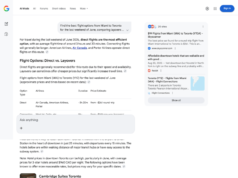Concerns about identity theft, financial fraud and business or government tracking are creating a “chilling effect” on online commerce and free expression, according to analysis of data from a 2015 survey of Internet use conducted for the Department of Commerce’s National Telecommunications and Information Administration (NTIA).
Of the 41,000 households asked about privacy and security in the July 2015 U.S. Census Bureau survey for the NTIA, 19 percent of those using the Internet said they had experienced a personal problem related to those concerns sometime over the previous year. Those respondents were more likely to avoid conducting financial transactions, posting on social networks or expressing controversial opinions online, according to the survey.
This lack of trust in online security and privacy is more than a problem affecting just individual users, according to the NTIA. Such sentiments could lead to a reduction in economic activity and hurt the free exchange of ideas online, the agency warned.
Mistrust of the Internet
“It is clear that many Americans have serious concerns about privacy and security on the Internet,” policy analyst Rafi Goldberg wrote Friday in a blog post on the NTIA’s Web site. “NTIA’s initial analysis only scratches the surface of this important area, but it is clear that policymakers need to develop a better understanding of mistrust in the privacy and security of the Internet and the resulting chilling effects.”
Across the board, people who had personally experienced recent privacy or security breaches were more reluctant to conduct a number of online activities. For example, 40 percent said they avoided conducting financial transactions online, compared to 29 percent of households in general, and 35 percent avoided buying goods or services online, or posting on social networks, compared to 26 percent of respondents in general.
“The apparent fallout from a lack of trust in the privacy and security of the Internet also extends beyond commerce,” Goldberg noted. “For example, 29 percent of households concerned about government data collection said they did not express controversial or political opinions online due to privacy or security concerns, compared with 16 percent of other online households.”
Snowden Revelations Led to Chilling Effects
The NTIA analysis is not the first to discover that security and privacy concerns can deter people from certain activities online. Research published in the Berkeley Technology Law Journal earlier this year found that whistleblower Edward Snowden’s 2013 revelations about National Security Agency surveillance had an immediate as well as a lasting, chilling effect on Wikipedia activity related to sensitive topics.
“Wikipedia, like many online service providers, survives through user traffic and contributions, both of which may be chilled temporarily or permanently by government surveillance,” Jonathon Penney, an assistant professor of law at Dalhousie University, wrote in the “Chilling Effects: Online Surveillance and Wikipedia Use” research study. While his research didn’t look at the possible impact on economic activity, Penney noted that government surveillance “may have a substantial impact on the bottom line of online service providers and other businesses.”
In his NTIA blog post, Goldberg said that the agency plans to continue analyzing data and policies “that could help build trust in the Internet and stimulate the free flow of information and commerce online.” The Obama Administration last year also introduced draft legislation — the Consumer Privacy Bill of Rights Act — to “establish baseline protections for individual privacy in the commercial arena.”
The NTIA is also soliciting public comments through May 23 on potential policy issues related to the continued development of the Internet of Things.






